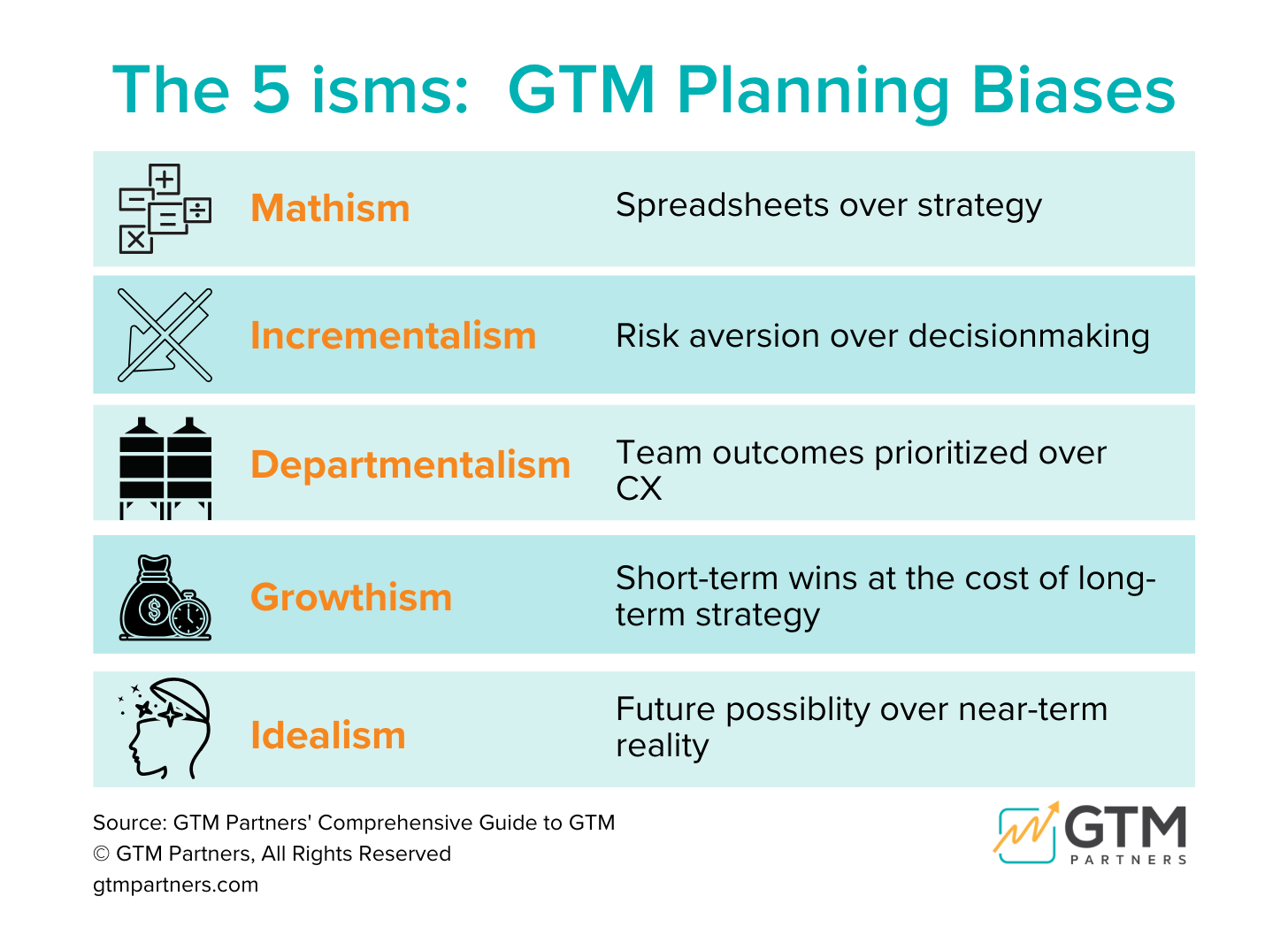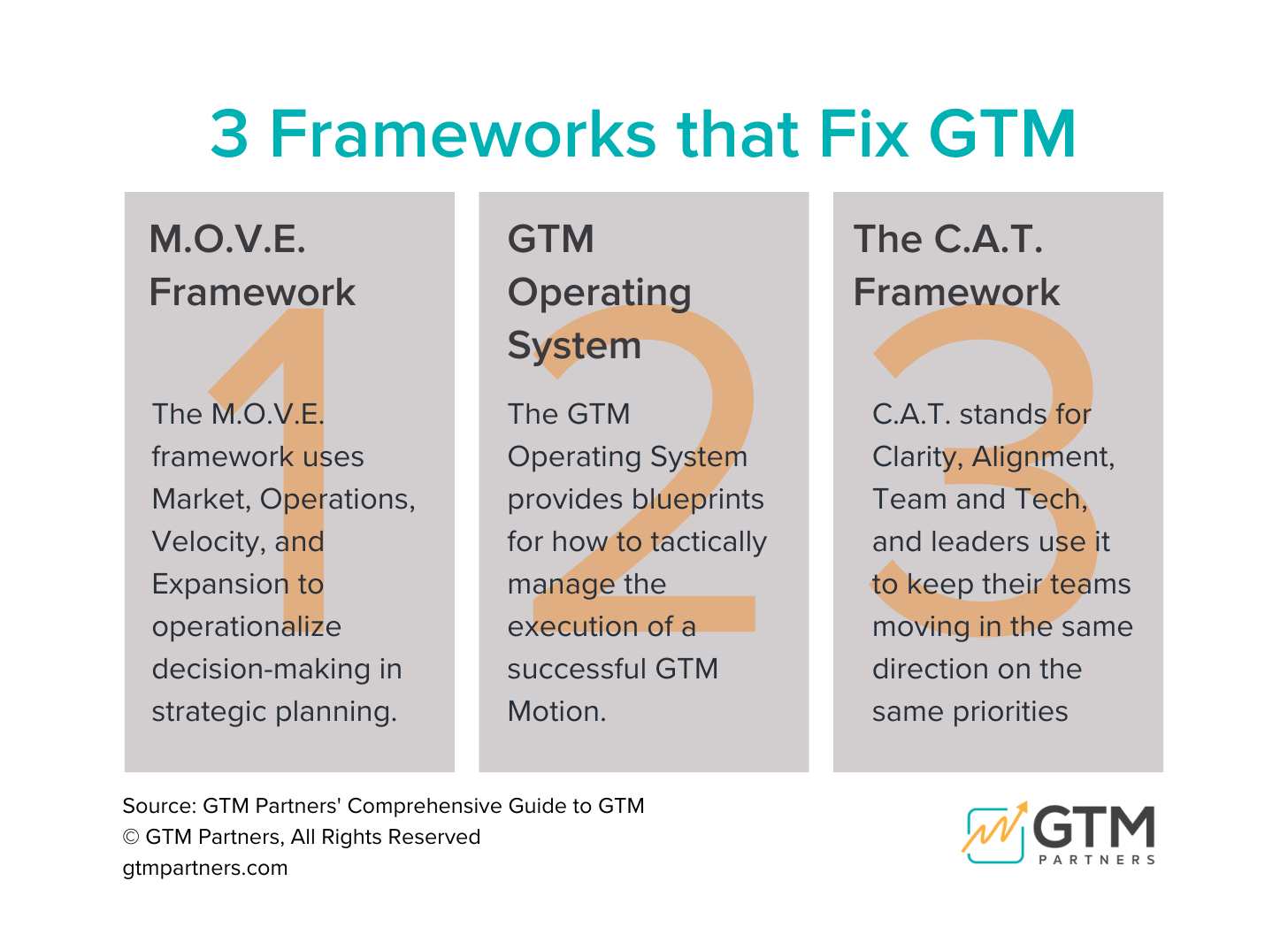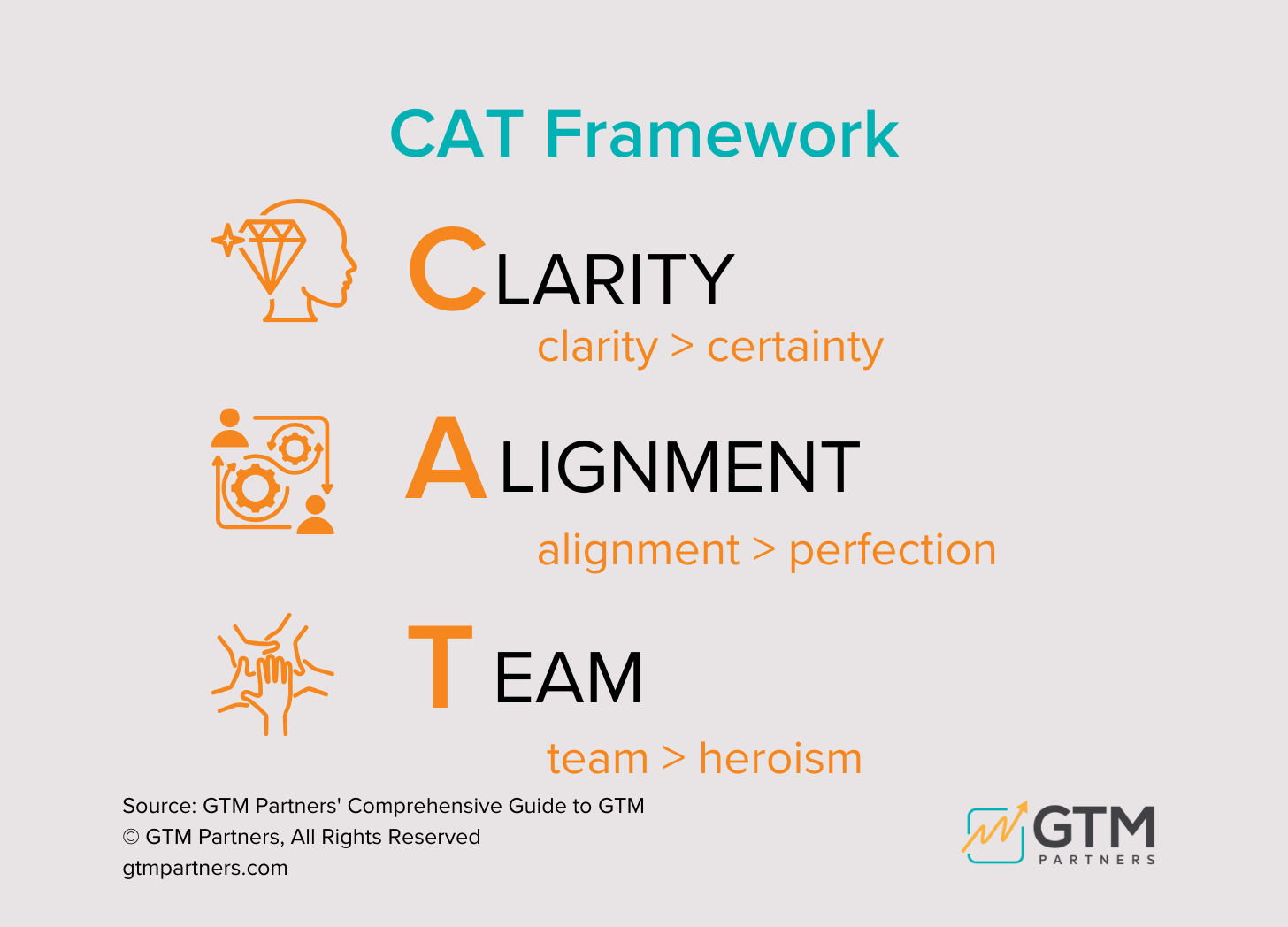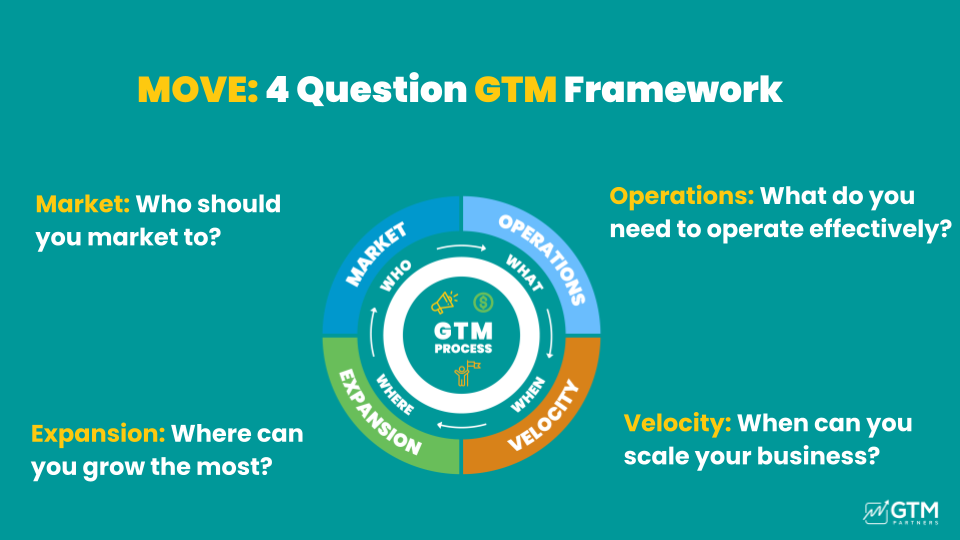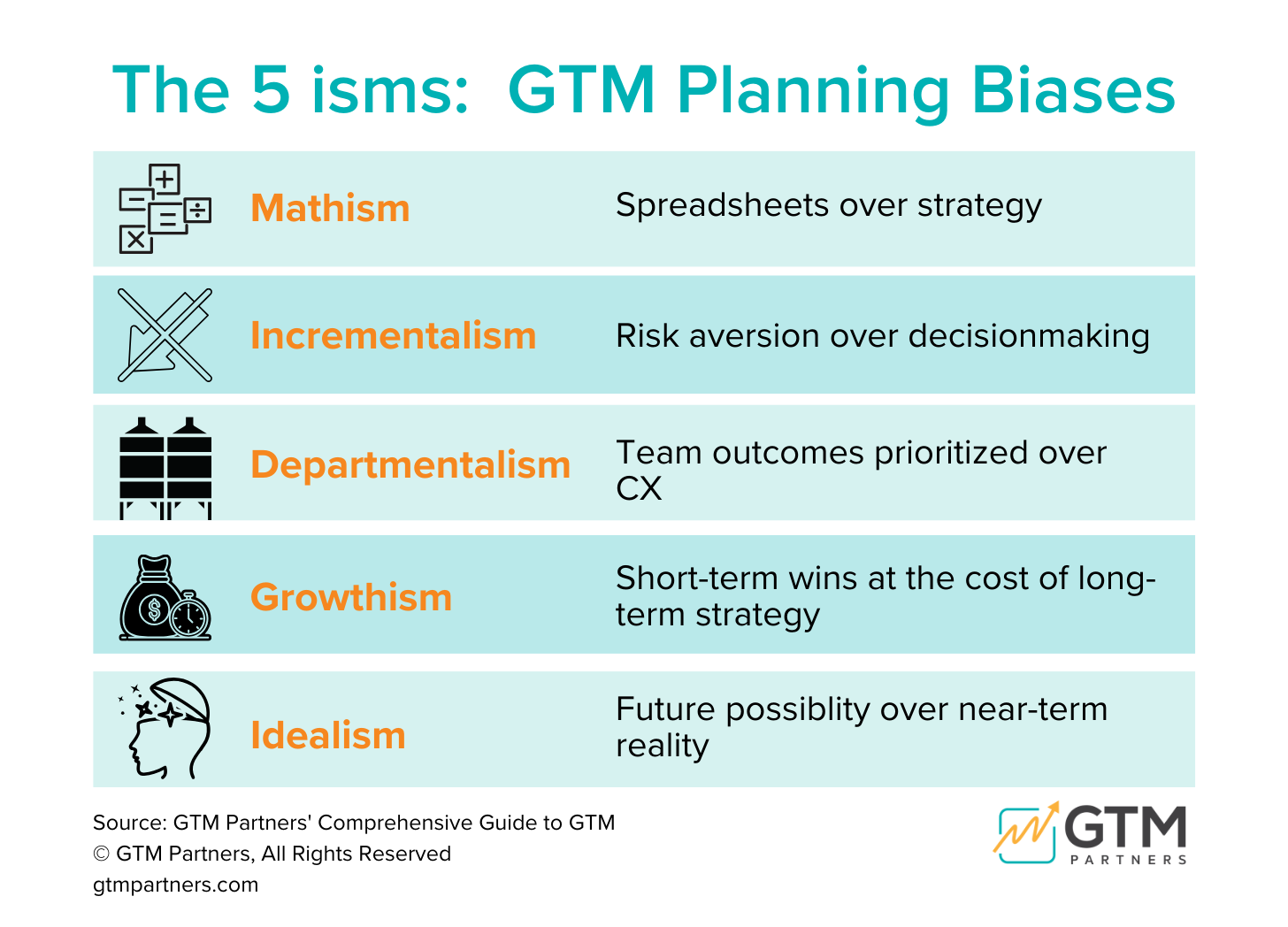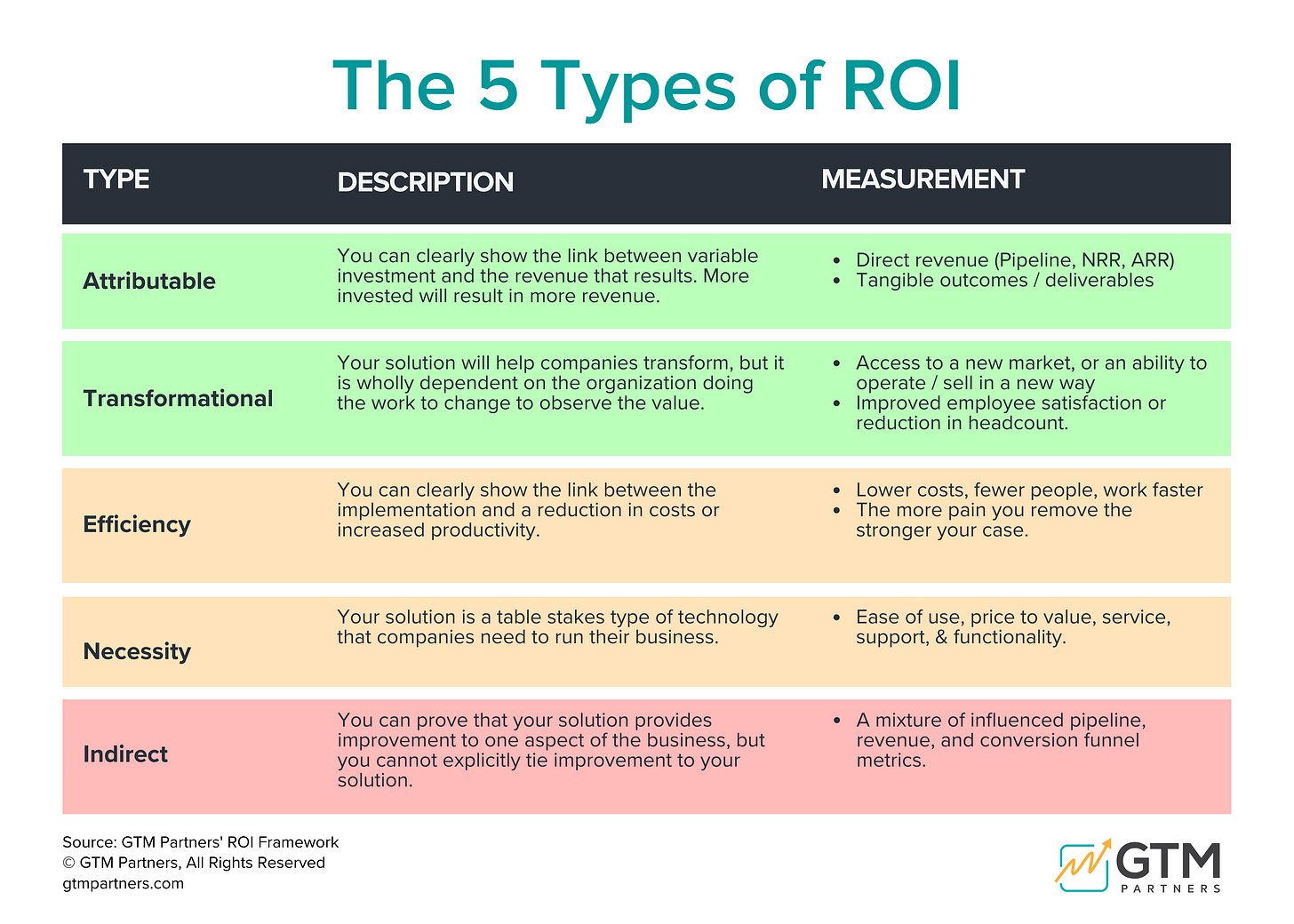Filters
Unlock 3x Revenue Growth: Spreadsheets Alone Won't Get You There
Thanks for being one of more than 73,000 forward-thinking GTM Leaders who subscribe to this weekly research note. We aim to be the go-to for go-to-market, so we appreciate you reading and sharing when you see something you like!
This week’s research note includes:
GTM Research: How to Overcome the 5 GTM Planning Biases
GTM is Better Together: Announcing our MC’s!
GTM Events: Events you should know about
GTM Research: 5 GTM Planning Biases
Does this scenario sound familiar?
A new revenue target has been established, with the CEO and board aiming for a 3x increase in revenue for a specific product or segment next year.
So you start with some calculations.
You think backwards from the target – determining the number of MQLs and SQLs needed to reach 3x revenue. You consider how many new salespeople need to be hired and the marketing budget required.
But what if we told you this approach is flawed?
Achieving such an ambitious revenue target demands a comprehensive, integrated GTM (Go-To-Market) strategy.
Unfortunately, you can't simply rely on calculations. Trying to do so is unlikely to help you meet your target without making compromises that could cause problems later on.
“Mathism” is one of five biases we’ve identified that can hinder the planning process.
Mathism
Description: Mathism involves relying heavily on spreadsheets and numerical analysis to drive strategy.
Drawback: This approach can lead to overlooking the importance of strategic thinking and the qualitative aspects of planning, potentially resulting in a lack of holistic understanding of market dynamics.
Incrementalism
Description: Incrementalism is characterized by a preference for small, cautious steps in decision-making to avoid risk.
Drawback: This risk-averse mindset can hinder bold, innovative decisions that might be necessary for significant growth and competitive advantage.
Departmentalism
Description: Departmentalism focuses on achieving outcomes at the team or departmental level rather than prioritizing customer experience (CX).
Drawback: This can lead to silos within the organization, where different teams are not aligned with each other or the overall customer-centric strategy, reducing overall effectiveness.
Growthism
Description: Growthism emphasizes short-term gains and wins, often at the expense of long-term strategy.
Drawback: Prioritizing immediate results can undermine sustainable growth, as it may involve cutting corners or making decisions that are not aligned with long-term objectives.
Idealism
Description: Idealism involves focusing on future possibilities without adequately considering the current realities.
Drawback: This can result in plans that are unrealistic and unattainable, leading to frustration and a failure to meet goals due to a disconnect between vision and execution capabilities.
These biases highlight the importance of a balanced and integrated approach to GTM planning that considers both quantitative and qualitative factors, aligns teams with customer-centric goals, and balances short-term and long-term objectives.
Annual planning should begin with strategic discussions and the necessary trade-offs at the company level, long before considering the number of new reps or the marketing budget needed to generate a specific number of MQLs.
Remember, the goal of GTM is to acquire, retain, and grow customer relationships.
This cannot be achieved through spreadsheets or funnel diagrams alone.
So what is the right approach?
The complexity of modern GTM requires new models and approaches for annual/quarterly strategic planning, goal setting, budgeting, and plan execution.
We need to integrate holistic GTM thinking into the overall strategy and planning process, allowing it to both inform and be informed by these efforts.
At GTM Partners, we utilize various methods and methodologies, but primarily rely on three frameworks for planning and goal setting.
CAT: Clarity, Alignment, Team, and Technology
Through our experience at GTM Partners and as GTM professionals over the past 20+ years, we’ve identified that many GTM issues stem from misalignment among leadership, teams, and individual functions.
Teams often consist of busy individuals with their own departmental goals. Without alignment, different groups can work in silos for months, only to discover they haven’t achieved the actual objective. This is frustrating for both individual contributors and team leaders.
This is where CAT comes in.
Clarity
Clarity is more crucial than certainty.
It means ensuring your team understands the business strategy, decisions, and corresponding goals, along with a clear understanding of what these goals mean within the context of their roles.
While you can rarely be certain about future events, you must be clear about your actions, priorities, and timing.
A clear direction enables teams and individuals to make better day-to-day decisions, keeping them aligned with your strategy.
Alignment
Alignment is more important than perfection or being “right.”
While clarity is about overarching strategy, alignment focuses on the details and day-to-day decision-making.
Agreements should be made in a way that everyone can follow.
Being aligned allows for execution, learning, iteration, and transformation as you progress, keeping everyone in sync. This approach helps you arrive at the “right” answer faster, or more likely, one of many possible right answers.
The resulting project list, prioritization, and deliverables provide the direction your GTM team needs.
Team
A well-functioning team is better than individual heroism.
Scale, repeatability, and efficient growth are only achievable with a team-oriented approach.
With clarity and alignment, the need for “heroes” to hit goals is eliminated. You can effectively mobilize all resources to maximize output and efficiency.
A strong team also mitigates the risk of losing an A player. The entire team should be able to connect their work to the goal and feel valued.
Whether you conduct your own CAT session or have GTM Partners assist you, it’s a crucial part of the 2024 planning process.
MOVE: the 4 Questions
If you want better answers, ask better questions.
These are the 4 questions that can and should define your exploration of your GTM journey:
Who should you MARKET to?
What do you need to OPERATE effectively?
When can you scale your business (VELOCITY)?
Where can you grow the most (EXPANSION)?
GTM is Better Together: News and Updates
“GTM is Better Together” is a revolutionary new vision that the future of GTM is better together with unified teams, tech, and trust. This is a weekly feature where we will share the latest announcements related to this important initiative.
Drumroll, please…
GTM is Better Together is going to be hosted by two inspirational folks that we’re pretty sure you are familiar with.
They’ve got strong POVs and stellar experiences that have helped tons of companies, operators, and leaders grow!
We’re thrilled to announce Jen Allen-Knuth and Morgan J Ingram as our MCs and hosts!
Ticket requests are open for all four shows!
August 28, 2024: Atlanta, GA
September 10, 2024: Boston, MA
October 22, 2024: New York City, NY
November 20, 2024: San Francisco, CA
Comped pairs of tickets (so you can bring a colleague from another department) are available if you meet all three of these criteria:
You’re a senior GTM Leader (marketing, sales, customer success, product, RevOps, or the leadership team)
You work for an enterprise company
You are a customer of one or more of our partners for this event (Demandbase, Clari, On24, Vidyard, Totango, Catalyst, MadKudu, G2, Technology Advice, or ZoomInfo)
If you meet the first two criteria but are not a customer of any of those companies, you can apply for a ticket here:
Hope to see you there!
GTM Events
A list of upcoming events of interest to GTM professionals
July 24, Virtual:
August 28, Atlanta: GTM is Better Together
September 10, Boston: GTM is Better Together
September 18-20, Boston: INBOUND 2024
October 16, Austin: GTM Made Simple Roadshow
October 22, NYC: GTM is Better Together
November 20, San Francisco: GTM is Better Together
Are you a B2B company between $10-100M in revenue who needs help with your GTM strategy and execution? We’d love to chat.
Let us know if there is anything you particularly like or don’t like about our weekly research note! We’re always looking to improve it.
Love,
The GTM Partners Team

